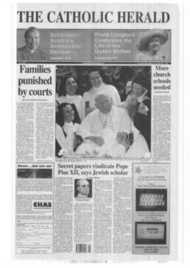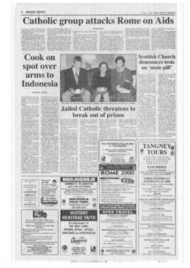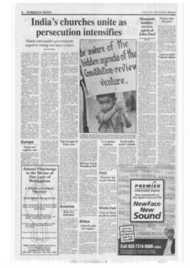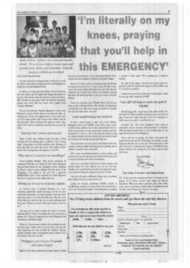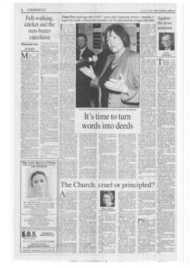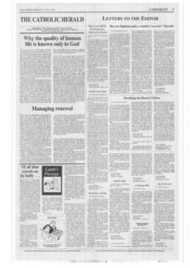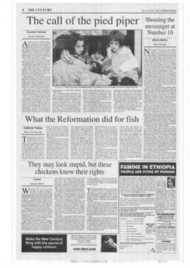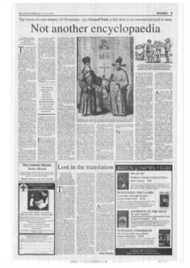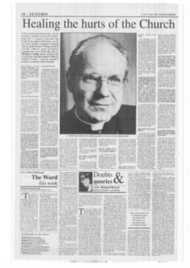Page 7, 21st July 2000
Page 7
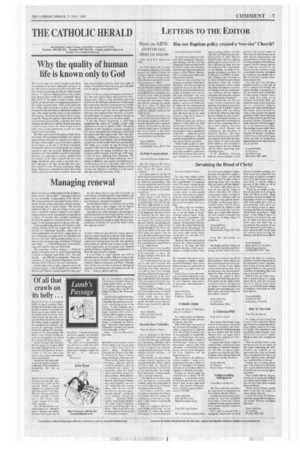
Report an error
Noticed an error on this page?If you've noticed an error in this article please click here to report it.
Tags
Share
Related articles
Lay Fury As Diocese Plans Parish Purge
Many Criticisms Of `ground Plan'
Church Planning Sweeping Changes
'and Above All, No Fuss'
`dagger Twisted In The Vitals' By School Closure
Managing renewal
EIGHT MONTHS AGO Bishop Brian Noble of Shrewsbury issued a "green paper" containing proposals for the wholesale reorganisation of his diocese. The reorganisation was prompted by two trends: a steady decline in Mass attendance and the increasing average age of parish priests. The diocese predicted that, if it took no action, in ten years time it would be forced to spend its ever diminishing resources on the maintenance of superfluous property. This month, after a lengthy consultation process, the proposals were presented as a "white paperto be inmlemented over the next decade.
In the neighbouring diocese of Liverpool, Archbishop Patrick Kelly has begun the sensitive process of "clustering" parishes, where two or more communities are served by a single priest. At least 70 parishes are expected to be clustered over the next ten years. Reorganisation plans are at a more or less advanced stage elsewhere in England and Wales — in Middlesbrough, Portsmouth, Lancaster and Hexham and Newcastle.
The importance of these changes — which are likely to affect the lives of every single practising Catholic in England and Wales over the next decade — are difficult to exaggerate. They raise questions of the profoundest importance for the mission of the Church in the new millennium:
Are the laity ready to play a greater role in the Church's mission, a role prophetically identified at the Second Vatican Council almost 40 years ago? Are the clergy able to cope with the burden of extra Masses, increased pastoral responsibilities and paper work, at a time when many should be looking forward to a peaceful retirement?
Are the bishops able to avoid demoralising both clergy and laity as they struggle with the biggest and hardest decisions of their episcopal lives?
And, above all, is the Church to concede that its mission has failed in these lands and that all that is left to it is to manage decline? Or will it harness the energies released by change to begin the new evangelisation of Britain for which the Holy Father has urgently called'?
ALREADY THERE. are signs that the coming upheaval may be a time of renewal in the life of the Church. In Shrewsbury parishes threatened with amalgamation have sprung hack into life. One deprived parish plans to ask the laity to assist clergy with local evangelisation. In Liverpool, each clustered parish will form a "taskforce for evangelisation" to draw the lapsed back to church.
It is too early to judge whether this will be repeated across the country. What is certain is that the next decade will be a defining period for the Catholic Church in England and Wales. Whether they will be years of woe or of revival will depend upon the concerted prayers and actions of each one of us — bishops, priests and laity.
blog comments powered by Disqus


